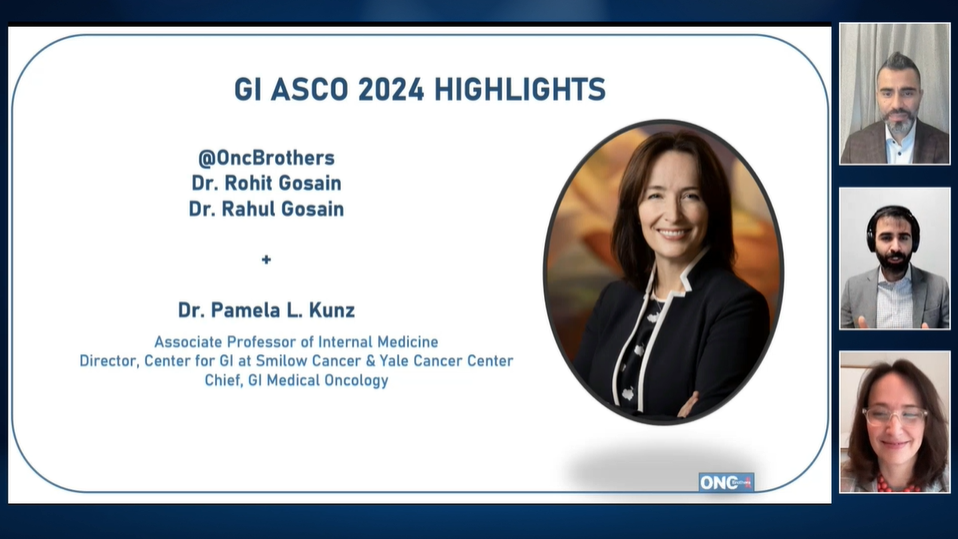New Standard of Neoadjuvant Care for Rectal Cancer Established
Findings from the NSABP R-04 trial demonstrated that neoadjuvant capecitabine combined with radiation therapy had outcomes similar to previously established standards of care for stage II or III rectal cancer.
Carmen Joseph Allegra, MD
Findings from the four-arm phase III NSABP R-04 trial demonstrated that neoadjuvant capecitabine combined with radiation therapy had outcomes similar to previously established standards of care for patients with stage II or III rectal cancer.
“This study definitively establishes capecitabine as a new standard of care in this setting,” said Carmen Joseph Allegra, MD, the lead author of the study at a press conference prior to the 2014 Gastrointestinal Cancers Symposium.
The single-agent oral chemotherapy capecitabine was compared with 5-fluorouracil (5-FU), 5-FU plus oxaliplatin, and capecitabine plus oxaliplatin. Overall, a significant difference between treatments arms was not observed for local-regional control (LRC), disease-free survival (DFS), and overall survival (OS). Moreover, when oxaliplatin was added to either regimen, it did not provide additional clinical benefit but increased overall treatment toxicity, including diarrhea and fatigue. Infusional 5-FU and capecitabine had similar side effects.
A total of 1608 patients were randomly assigned to receive 5 weeks of radiation therapy at 46 Gy plus boost plus either 5-FU (477 patients; CIVI 225mg/m2, 5 days a week), 5-FU plus oxaliplatin (329 patients; 50 mg/m2); capecitabine (472 patients, 825 mg/m2, PO BID); or capecitabine plus oxaliplatin (330 patients). Patients received treatment for 5 weeks and then underwent surgery to remove the tumor.
Rates of LRC ranged from 87.4% to 88.2%. Local recurrence occurred in 2% to 4% of stage II patients and 4% to 11% of stage III patients after undergoing surgery in which the tumor was completely removed and no traces of microscopic disease were detected. In each of the treatment arms, about 80% of patients were still alive 5 years after surgery. By 5 years, 16% of stage II and 26% of stage III patients developed distant metastases.
The researchers also noted that although capecitabine is more expensive than 5-FU, the cost differential for the two treatments also depends on the cost of placing and maintaining the port and pump for 5-FU infusion. Ease of administration and convenience for patients are other factors in favor of oral capecitabine.
“Doctors should feel reassured that they are not giving less effective therapy if they prescribe capecitabine,” said Allegra, who is a professor of Medicine at the University of Florida in Gainesville. “Oral capecitabine is certainly far more convenient for patients compared with infusional 5-FU. It means taking pills twice a day, rather than undergoing surgery to place an intravenous port and then wearing a pump on their belt for 5 weeks.”
Early stage rectal cancer may be curable with a combination of preoperative chemotherapy, radiation therapy, surgery, and postoperative chemotherapy. Patients with operable stage II or stage III rectal cancer typically undergo chemotherapy and radiation therapy before surgery to shrink the tumor. Certain chemotherapy drugs, including 5-FU, capecitabine, and oxaliplatin, act as so-called radio-sensitizersthey make the tumors more vulnerable to radiation.
Only 5-FU is currently supported by randomized clinical trial data as a radio-sensitizer in the preoperative treatment of rectal cancer. Although there hasn’t been any definitive data to support the use of capecitabine in this setting, many doctors suspected it would work because, it is effective as an adjuvant treatment for metastatic colorectal cancers and in the adjuvant colon setting.


















